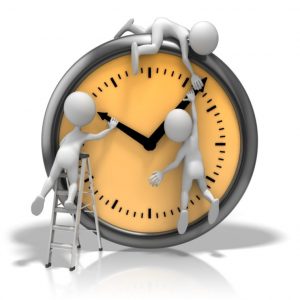TO THE POSTGRADUATES: A TRAVEL GUIDE TO THESIS DEFENCE!

Why do you defence a dissertation or write a research paper?
Defencing your dissertation, you:
– get a new status
– increase the number of opportunities for new creative projects;
– expand the circle of communication in the educational sphere to another level;
– create an intellectual resource for generations to use.
Choosing a theme is an interesting task!
There are two options for when a theme is born:
- You are entering graduate school because the topic of your Master degree paper was interesting and you want to move on in the wave of positive thoughts and emotions, with the desire to bring something new and interesting to the life of science. You are expanding and considering the topic from a different perspective from the advice of a scientific advisor.
- You are entering graduate school because of new interests, and the topic is suggested by a scientific advisor, which does not always coincide with our vision of the “beautiful”.

In the first case, it is very important to stay afloat of interest, “not to splash” on the road something valuable that moves you forward to defense your thesis. To do this, I recommend that you stick to the deadlines, systematically (at least once a week) devote time to work, maintain constant contact with the scientific advisor (with each individual frequency of meetings, calls, letters, but at least once every two weeks).
In the second case, there may be options. To preserve the vision of the “beautiful”, I propose to work on the material independently and to offer three topics, and five to the best supervisor. The most interesting thing in this scenario is the change of theme in the process of writing the work itself.
The main thing – moving forward at a moderate pace, but without stopping.
Conclusion: The proposed topic may change initially. Suggest your options and remember the invaluable experience that comes with your mentor!
How to schedule meetings with a scientific adviser
Meeting with a scientific adviser.
We need to keep in mind that the employment rate of a person immersed in science is quite high, so:

- We arrange a meeting in advance, in two or three days, and preferably in a week or two. It is best if you manage to agree on regular consultation days.
- The day before the scheduled meeting, it is necessary to agree again time and place.
- It is important to understand how much time a scientific adviser is willing to devote to you in order to prepare a certain amount of material or question.
- It is better to arrive in 10-15 minutes before the appointed time – you will have the opportunity to “gather thoughts”.
- During the meeting, it is best to record the recommendations on the recorder (if, of course, a scientific adviser agrees).
- Speak your plans a few weeks in advance – this will increase the percentage of your immersion in the work.
- When you return, transfer the feedback you received to paper. Do this without delay until tomorrow.
It will be useful for you to agree on joint days of consultation for several graduate students. The value of working in a group is that even people unfamiliar with each other begin to share interesting and useful methods and sources of information on a given topic, which enriches each member of the group.

It is important!
Remember that the best way to communicate with a scientific adviser is to have a personal meeting. But if a scientific adviser at a certain point of time suggests to contact via SMS, then this type of communication should be used.
Any meeting or correspondence with a scientific advisor implies a maximum concentration on the subject matter to be discussed. Think through your questions in advance and answer them. Save your time and time of your scientific adviser!
Systematic feedback with a scientific adviser (email, phone call, personal meeting) is a very important part of the learning process.
Synthon’s format: Speak “we”, “speak to us”.
How to interact effectively with a scientific advisor!
For every person, regardless of his age, profession, nationality, it is important to have a quality of communication that motivates development (qualitative change of personality traits regarding knowledge, skills and skills in the past)!
 What components can be used to achieve this goal?
What components can be used to achieve this goal?
- Interest of both parties (it is important to determine the benefits of interaction).
- Systematic scientific adviser’s feedback (email, phone call, personal meeting).
- Your weekly scientific work that can be from 10-15 minutes a week to several hours.
In 10-15 minutes you will have time to review previously written materials, (refresh them in memory, which is very important), write a short plan of the article and plan the next steps.
For 2, 3 or more hours you can make a collection of literature (10-15 sources), or write a detailed plan of another article or dissertation.
How to allocate time!
 Sometimes it seems like we are doing very little to achieve a specific goal! If you think you can do more, think about what areas of your life may be left unaddressed! Assess the consequences!
Sometimes it seems like we are doing very little to achieve a specific goal! If you think you can do more, think about what areas of your life may be left unaddressed! Assess the consequences!
Where to find time to work? How to highlight it in the overall flow of important matters? How long does it take?
Of course, each answer will be different!
Take a look at your weekly schedule of acts (I hope you are already have it?!) from a bird’s eye view! What is your most enjoyable day for work if you take the current time period?
Chose?
Perfectly! Now you can tune in: morning, afternoon or evening? Set a goal – to solve a problem and choose the best time. Adjustments are sure to be – we all live in a constantly changing world!
It takes 15 minutes for someone to experience the joy that you have set aside for your Dissertation, among important things. It will take 3 hours for someone to dive into work. And in another case, the process will go if you do SISTEMATICALLY!
We work systematically!
 When planning your writing, keep in mind that usually scientific advisers do not rush to write, but it does not cancel the deadline! One year to write a thesis is on the brink of stress.
When planning your writing, keep in mind that usually scientific advisers do not rush to write, but it does not cancel the deadline! One year to write a thesis is on the brink of stress.
I advise you to write a rough dissertation plan with definite terms and volume for the entire period of writing. During work, the plan can be adjusted.
We set deadlines for a specific step. You can change the term (save health)
For example: “my tasks for the next week:
- to approve the first unit of thesis with scientific adviser
- collecting material for the first unit.
It is important to keep in mind that when preparing your work, you should refer to the primary sources, not rewrite the interpretation of others’ theses.
USEFUL LINKS
Ukrainian Library Association
Scientific Periodicals of Ukraine
National Agricultural Library of the National Academy of Agrarian Sciences of Ukraine
Scopus
Ministry of Education and Science of Ukraine
International projects
International scientific conferences
